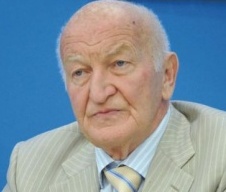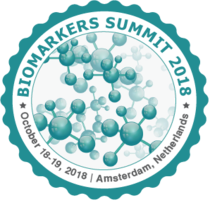
Wassil Nowicky
Ukrainian Anti-Cancer Institute| Austria
Title: The anti-cancer preparation NSC 631570 (UKRAIN): mechanism of action
Biography
Biography: Wassil Nowicky
Abstract
NSC 631570 is the very first proton anticancer preparation and due to this, after administration, it accumulates in tumors very fast which can be seen under the UV-light, thanks to its the auto-fluorescence. Besides this, preparation can regenerate the immune system and works as an immunomodulating agent. The selective effect of the NSC 631570 has been confirmed by 120 universities and research centers in the world. Until now, this preparation has been tested on over 100 cancer cell lines and on 12 normal cell lines. It was shown that NSC631570 down regulates matrix metalloproteinase (MMP)-2 and MMP-9 in pancreatic cancer cells, suggesting that the preparation may decrease cancer cell invasion. UKRAIN significantly increased the pro-apoptotic mRNA expression of Bad, Bax, and FasL; decreased the cell survival protein p-Akt and the anti-apoptotic protein Bcl-2; and increased the protein levels of cleaved poly (ADP)-ribose polymerase (PARP) and caspase-10 in cancer cells. Exposure of malignant cells to the drug results in G2/M arrest followed by bimodal programmed cell death. NSC631570 can induce both apoptosis and necrosis of tumor cells in vitro. Apoptotic cells are predominated among dead tumor cells after treatment with the drug. The mechanisms of NSC 631570-mediated tumor cell apoptosis have not yet been extensively investigated. Tubulin expression in pancreatic ductal adenocarcinoma (PDAC) cells indicated an antiproliferative effect of NSC 631570 on the basis of alterations in mitotic spindle microtubule dynamics, leading to abnormal mitosis. In HeLa cervical cancer cells and some other tumor cells, the drug induces apoptosis independently from death receptor signaling via a pathway involving mitochondrial damage, cytochrome c release in the cytoplasm and caspase activation that is partially sensitive to overexpression of Bcl-2, Bcl-xL and a dominant negative caspase-9. In addition to the direct induction of tumor cell apoptosis, NSC-631570 can increase tumor immunogenicity and recovers the role of the tumor as an effective immunogenic hub. The ability of the preparation to induce tumor cell death accompanied by HMGB1 release (immunogenic tumor cell death) can be apply for cancer immunotherapy by using dendritic cells, as a high level of HMGB1 can potentiate the immunotherapeutic effect of the autologous tumor lysate-pulsed dendritic cells vaccine. Therapeutic effect of NSC631570 is always accompanied by immune responses stimulation. Modulation of phagocytes functions is an important component of the therapeutic effect of NSC 631570. UKRAIN can influence macrophage migration and causes an influx of macro-phages into the site of its injection. NSC 631570 causes an influx of macrophages into the tumor growth area after intravenous administration and induces their pro-inflammatory metabolic activation. Moreover, NSC 631570 can restore pro–inflammatory functions of macrophages, alternatively polarized by hypoxia. Physical activity interferes with immunomodulatory action of NSC 631570 and abrogates pro-inflammatory shift of circulating phagocytes.

